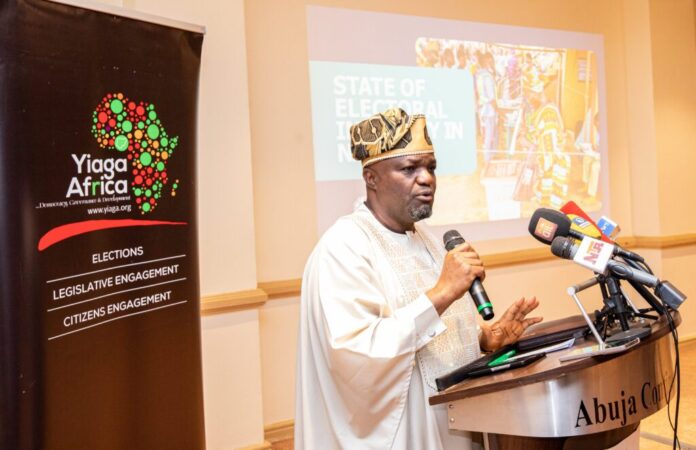In a rare show of unity, Nigeria’s 19 registered political parties have come together under the Inter-Party Advisory Council (IPAC) to demand sweeping reforms to the nation’s electoral process — including same-day elections, mandatory technology use, and stiffer penalties for electoral offenders.
Speaking at a public hearing before the Joint Committee on Electoral Matters of the National Assembly, IPAC’s Deputy National Chairman, Dipo Olayoku, who represented National Chairman Yusuf Dantalle, urged lawmakers to “rise to the moment” and deliver reforms that would protect the sanctity of the ballot and restore public confidence in democracy.
“Our democracy is too important to be left vulnerable to manipulation and inefficiency. We must modernize our electoral system, enforce accountability, and give Nigerians the confidence that every vote counts.”
Olayoku explained that the proposals were the outcome of months of consultations and a unanimous resolution adopted at IPAC’s General Assembly on August 27, 2024, where all parties agreed to a common reform agenda for credible elections.
Among IPAC’s key recommendations are:
Conducting all elections in one day to cut costs, reduce voter fatigue, and discourage post-election crises.
Making the use of BVAS and IReV compulsory to ensure transparent accreditation and result transmission.
Mandating immediate correction or rescheduling of elections in polling units where technical glitches occur.
Imposing strict sanctions on electoral offenders to deter fraud and violence.
Resolving all election petitions before swearing-in to end the era of “tenure under litigation.”
Linking voter registration (CVR) to the National Identification Number (NIN) to eliminate multiple registrations and enhance the credibility of the voters’ register.
Olayoku said adopting these reforms would mark a turning point in Nigeria’s democratic evolution.
“These changes are not about politics; they are about protecting the future of Nigeria,” he stated. “If we fail to act boldly now, we risk eroding public confidence in democracy itself.”
The IPAC presentation has reignited national conversation on electoral accountability, with civil society groups and election observers hailing the council’s unified stance as a positive step toward a stronger democratic culture.
As the National Assembly reviews the proposals, expectations are high that the final amendments will emphasize integrity, transparency, and inclusiveness ahead of the 2025 general elections.
“What Nigerians want is simple — a system they can trust,” Olayoku concluded. “And with these reforms, we can finally give them that.”

